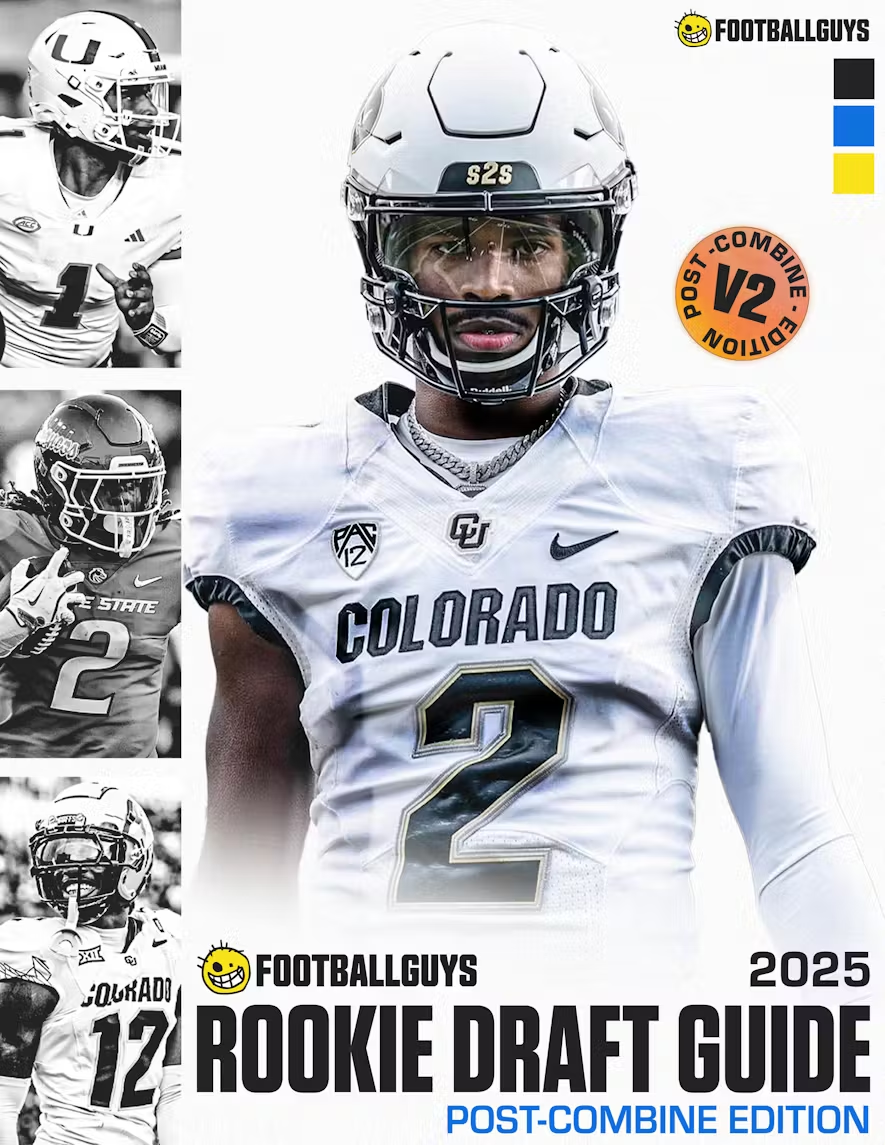There's a lot of strong dynasty analysis out there, especially when compared to five or ten years ago. But most of it is so dang practical-- Player X is undervalued, Player Y's workload is troubling, the market at this position is irrational, and take this specific action to win your league. Dynasty, in Theory is meant as a corrective, offering insights and takeaways into the strategic and structural nature of the game that might not lead to an immediate benefit but which should help us become better players over time.
You Don't Know What You Don't Know
Reports that say that something hasn't happened are always interesting to me, because as we know, there are known knowns; there are things we know we know. We also know there are known unknowns; that is to say we know there are some things we do not know. But there are also unknown unknowns—the ones we don't know we don't know. And if one looks throughout the history of our country and other free countries, it is the latter category that tends to be the difficult ones.
-Donald Rumsfeld
Few offhand remarks have captured the public imagination like Rumsfeld's casual categorization of risks in 2002— so much so that Rumsfeld chose it as the title of his memoirs. But Rumsfeld didn't invent the schema; it was drawn from the Johari window, a tool designed in 1955 for use in therapy and self-help which had become a popular framework everywhere from the intelligence community to NASA. (I first encountered it in theater classes, where it was commonly used for building a backstory and developing a character.)
The Johari window showed up in so many places and Rumsfeld's comment elicited so much discussion because the framework is a truly useful tool for considering uncertainty. Noting the distinction between known unknowns and unknown unknowns is not necessarily intuitive (or at least it's not usually reflexive), but the two categories present different risks and must be accounted for in different ways.
At the risk of messing with a classic, I would like to paraphrase it for a moment to draw another distinction. We know there are knowable unknowns; that is to say we know there are some things we do not know, but are capable of knowing. But there are also unknowable unknowns-- the ones where it's not that we don't know, but that we can't know.
(Like Rumsfeld, I'm not proposing a brand new schema; this idea already exists in the field of uncertainty quantification, which distinguishes between so-called epistemic uncertainty— things that could be known— and aleatoric uncertainty— things that are beyond our ability to know.)
Two Types Of Uncertainty
The word "epistemic" means "relating to knowledge", while the word "aleatoric" means "characterized by chance", definitions which go a long way toward highlighting the differences between them.
Let's say I hold up a coin and ask you about the chances it will come up heads when I flip it. Your first concern should be whether or not this is a "true", or unweighted, coin. The fact that you don't know represents epistemic uncertainty. The odds are very different if the coin has heads on both sides, after all.
But even if you know whether the coin is true or weighted, you still don't know how the flip is going to come up. The best you can do is provide an estimate of how frequently one side or the other will result. That's because coinflips are random processes and, therefore, subject to aleatoric uncertainty.
If I fire an arrow from a bow, you could calculate with a fair degree of accuracy where that arrow would land... if you knew the power with which I drew the bow, the weight and aerodynamic properties of the arrow, the prevailing wind conditions, and all other relevant factors. Most of the uncertainty in the arrow's landing spot is, therefore, epistemic uncertainty.
But even if you knew and precisely calculated all of those variables, if I launched fifty arrows with the exact same inputs each time, there would still be some variance in where they landed. Every arrow has subtly different mechanical properties; it will vibrate and flex in subtly different ways as it flies, and these variations will result in slight deviations in their path. This is aleatoric uncertainty.
(Some would quibble that this isn't technically aleatoric; in theory, if we knew the precise mechanical properties of each arrow and had suitably complex models and computers with sufficient processing power, we could precisely calculate all of those deviations. Perhaps! Though for our purposes I will note that "practically unknowable" is the same as "theoretically unknowable".)
Most uncertainty is similarly a combination of knowable unknowns and unknowable unknowns. What are the chances I get cancer in my life? There's a lot of epistemic uncertainty there, things that we could theoretically know that would allow a better estimate. Am I a smoker? (I am not.) Do I have a family history of cancer? (I do.)
But at the end of the day, there's a lot of aleatory uncertainty there, too. Sometimes, smokers with extensive family histories of cancer remain cancer-free. Sometimes, non-smokers with clean family trees get cancer. We can't ask enough questions and get enough answers to reduce the uncertainty here all the way to zero.
Why Does This Matter For Fantasy?
Continue reading this content with a ELITE subscription.
An ELITE subscription is required to access content for Dynasty leagues. If this league is not a Dynasty league, you can edit your leagues here.


